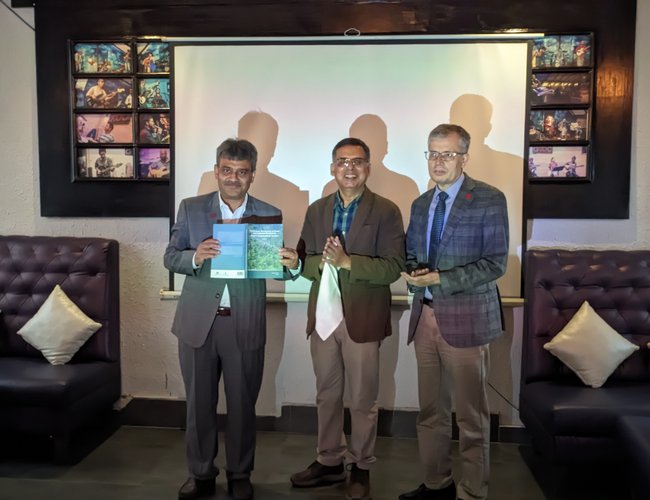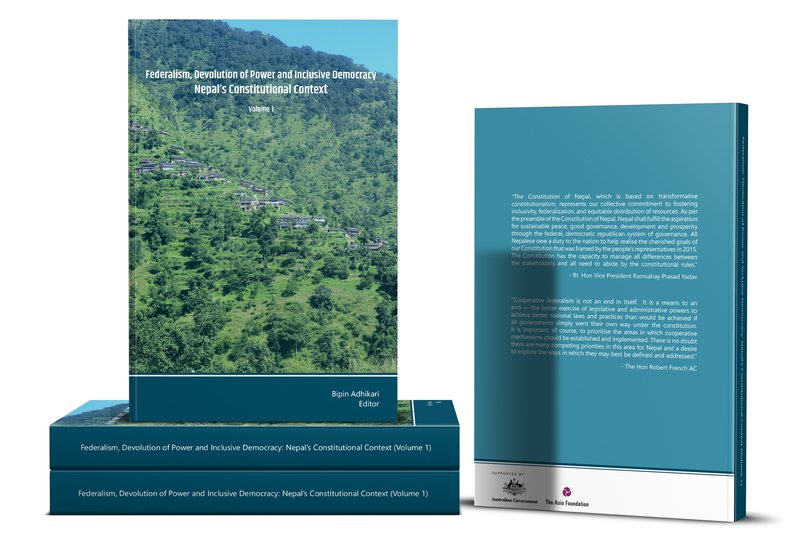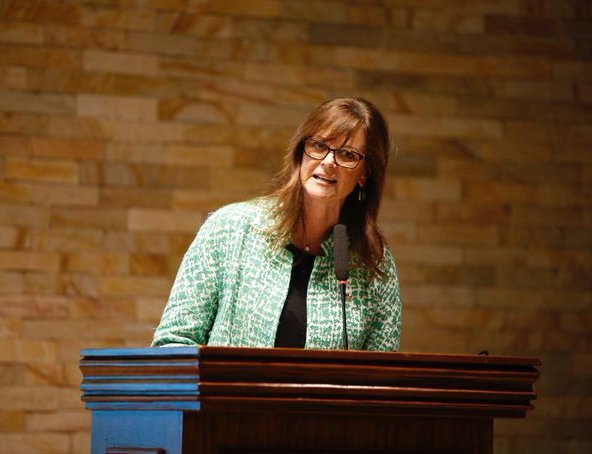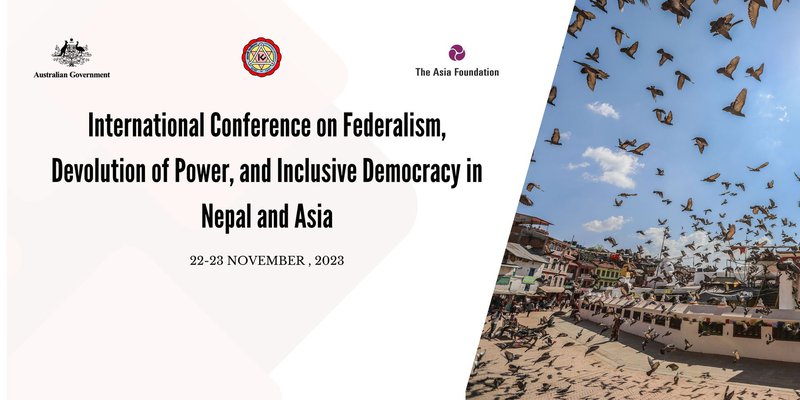Let’s start with the former. Throughout the two-day International Conference on Federalism, Devolution of Power and Inclusive Democracy in Nepal and Asia, an event supported by the Australian government, I realized that the love for federalism among Nepali is still intact. I am talking about “love” for a simple reason and it is not an exaggeration.
To embrace a radical change like the one embarked by the country, you really have to love it because federalism is a very complex thing. It is a headache actually but this is what all the great loves can also sometimes be.
While the constitution might be faulty in certain aspects that did not ensure the desired or expected “federal” outcomes many were hoping for, the real problem lies on the top.
Nepal jumped into a one of the greatest and most daunting experiments ever undertaken by a modern state, turning an autocratic mono-cultural monarchy, an extremely centralized form of government that was stifling people’s aspiration and their quest for recognition into a progressive, modern nation where the power is (at least supposedly) closer to the people.
It was an ambitious, daunting process, I would say, almost a gamble. Yet despite the criticisms, despite the downsides of such transformation, still, from what I learned from the conference, there are still strong feelings supporting federalism. This is a good thing.
Certainly, as we can see from the populist rabble rousers hitting the streets these days, it is undeniable that there is a lot of discontent as well. Federalism ended up being the primary target, the perfect scapegoat to channel all the discontents from the masses.
Nepal is no more an insulated nation after all.
While it is true that the war in Ukraine or what’s going on in Gaza did not particularly hit a nerve here like elsewhere, the national economy, no matter the influx of foreign capital thanks to the arrival of tourists, is in deep trouble.
What is also becoming clearer and this was also confirmed during the conference, is that the real problem is not federalism but rather the political class running the country. While on the one hand, there is a new constitution in place that is attempting, undoubtedly with some difficulties, to turn the nation into a true, solid and functional federal polity, the political leadership did not change, not an inch.
Obviously, this is not breaking news.
The same faces from the same dominant ethnic cultural group are still running the nation across all the tiers of government. This was one of the strongest messages emerging from the conference: while the constitution might be faulty in certain aspects that did not ensure the desired or expected “federal” outcomes many were hoping for, the real problem lies on the top.
“These people leading the three major parties do not want federalism,” the message kept echoing around the room throughout the event. That’s why the love and passion of most of the people towards federalism is not at peril of being jeopardized. Though fragile, the system in place is here to stay and this is the certainty I gained leaving the conference.

Because people understood that if certain improvements into the new system are needed to make it more workable, the real culprit for not making federalism effective is the elite running the nation. From here I have a hope that the overall framework has become resilient enough not to crack even if under pressure and even if some people are unhappy with it and want to revert to the past.
Such resilience cannot be taken for granted but, at the same time, it is one of the biggest achievements coming out of the massive transformations being undertaken by the nation. The political unwillingness of the political class, despite all the pretenses of showing otherwise, as frustrating and alienating as it is, won’t be able to turn back the clock.
Probably, while for some of the political leadership, for example former PM Oli, federalism may be an ideological “thing”, most of those running the country might have a sense of insecurity–the insecurity of really losing the grip on power; the insecurity of enabling others to emerge and govern their lives autonomously.
With this point, now I have to share the mixed feeling. It is about the fact that there is still not enough realization that inclusive democracy can only happen by truly empowering the most vulnerable sections of the society. Inclusive democracy won’t just be realized even if all the technical and political problems surrounding federalism will be solved.
The reality is that also power sharing at local levels is a reflection of the power dynamics at the center. Therefore, federalism per se, even a more complete and perfect form of it, won’t create an equitable and more diverse nation by default. There is no automatism between decentralization of powers even in the most radical forms that we can see in the most advanced federal systems around the world and achieving higher degrees of equity in the form of a real and meaningful access to the decision making.
We will need new electoral laws and a real discussion about the need for more affirmative legislation but these are issues that were not really central in the debate at the conference. Only the last session, which for me was probably the most significant, was focused on this delicate and sensitive aspect of inclusive federalization of the countries.
There were only three presentations focused on this aspect and, quite telling was the fact that out of them, only one was delivered by a citizen of Nepal. As the former Chief Justice of Australian Supreme Court, the key speaker at the Conference, said, no matter the rules and regulations that can make federalism transformative and effective, it is ultimately up to the people to make it work.
At the end of the day, it all goes down to a genuine desire to share power but also to a better realization that a new Nepal still has to find its own way to truly uplift those who have been historically marginalized. This historical mission is difficult and can be fraught but must be tackled even if it risks some alienation from the upper class people who would reject it outright.
On this, I am still not totally confident that there is an understanding (and internalization in the people’s self-consciousnesses) that federalism was, primarily, intended to uplift them and give them a voice. Federalism, in a way, should be a tool for creating inclusive policies around the nation and not just an end to itself.
Without recognizing the problem, more alienation and frustration might occur and, at that point, the foundations upon which federalism now rests, might start cracking. Then is when the love for federalism will be tested. Focusing on fixing the loopholes and technicalities won’t be enough.
Views expressed are personal.





-1701951296.jpg)
-1701951297.jpg?timestamp=1701951326369)
-1701951297.jpg?timestamp=1701951336515)
-1701951295.jpg?timestamp=1701951353512)
-1701951296.jpg?timestamp=1701951395602)




